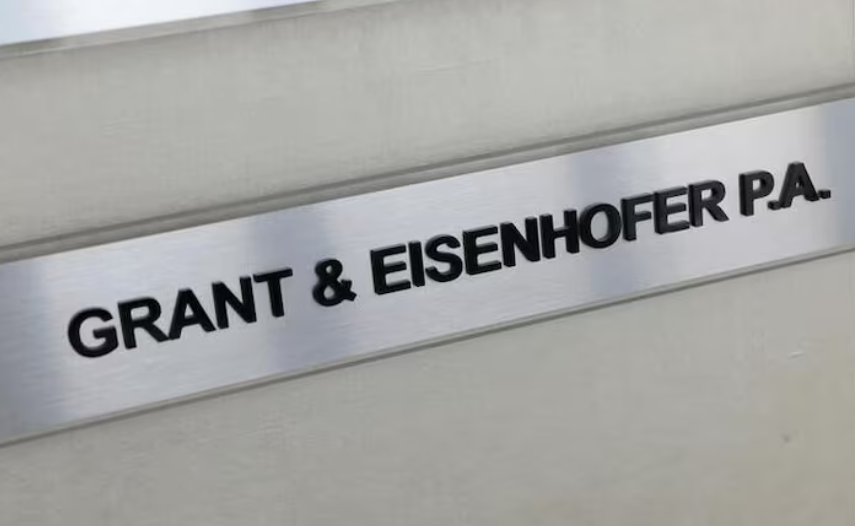The fate of $170 million in fees sought by lawyers at Grant & Eisenhofer and three other law firms negotiating an antitrust settlement with Visa and Mastercard remains uncertain after a Brooklyn federal judge rejected the proposed deal last week.
After nearly 20 years of litigation, the settlement aimed to require Visa and Mastercard to limit the swipe fees, or interchange fees, paid by millions of merchants when shoppers use credit or debit cards. Merchants have long accused Visa and Mastercard of overcharging them on these fees.
Under the agreement, Visa would have paid up to $113.3 million, and Mastercard would have paid up to $56.6 million to compensate the class action lawyers if the court approved their fee request.
However, U.S. District Judge Margo Brodie, in her 88-page ruling, stated that the settlement, which lawyers claimed would save merchants $30 billion over five years, did not go far enough.
Judge Brodie’s decision contained some positive news for the class attorneys, who included lawyers at Hilliard Shadowen, Freed Kanner London & Millen, and the Nussbaum Law Group. She did not object to the terms of their $170 million fee request, which the defendants had agreed to pay within 20 business days of the judge’s approval.
The attorneys now face a much longer wait as they must negotiate more concessions from Visa and Mastercard. Judge Brodie noted that the defendants could likely withstand a “substantially greater” settlement, citing an estimate that merchants paid $100 billion in interchange fees on Visa and Mastercard transactions in 2023 alone.
The proposed deal would have reduced the typical 1.5% to 3.5% swipe fee by 0.04 percentage points for three years, capped fees for five years, and given merchants more room to impose surcharges. However, it kept fees too high and still required merchants to accept an “Honor All Cards” rule, mandating that they take all Visa and Mastercard cards or none at all.
Attorneys at the four class counsel firms did not comment on the decision. A Mastercard spokesperson declined to comment, and a Visa spokesperson did not immediately respond to a request for comment. The companies have denied violating antitrust law.
Class action experts told Reuters that rejecting a proposed class action settlement in the preliminary stages is relatively rare. Ted Frank of the Hamilton Lincoln Law Institute, known for objecting to class action settlements, noted that Judge Brodie’s decision cannot be appealed and would be difficult to overturn given her findings.
Frank, who consulted with an objector to a 2013 settlement in the swipe-fee case but has not done any legal work relating to the 2024 settlement, said, “You wouldn’t be able to show that it’s clearly erroneous.”
The proposed settlement faced opposition from large retailers like Walmart, Target, and GrubHub, as well as the National Retail Federation (NRF) and the Retail Industry Leaders Association, who deemed it inadequate. Stephanie Martz, the NRF’s chief administrative officer and general counsel, stated that the NRF has not yet weighed in on the plaintiffs’ fee request due to other concerns over the deal. “It’s not ‘not a problem,’ but it’s not our particular problem,” Martz said.
Vanderbilt Law School professor Brian Fitzpatrick suggested that any new settlement would likely include a higher fee request, based on both the value of a renegotiated deal and the additional time required to reach it.
- In other fee news, Tesla and the legal team that voided Elon Musk’s $56 billion in stock options will present their arguments to a Delaware judge on Monday regarding the lawyers’ bid for compensation. The plaintiff’s team is seeking 29 million Tesla shares, worth around $7 billion as of Wednesday, which they argued is around 11% of the benefit they achieved for the company. Tesla contends that the case obtained virtually nothing for the company and the fee should be around $13.6 million.
- Plaintiffs’ firms including Carney Bates & Pulliam, Shamis & Gentile, and Edelsberg Law, who reached a $48 million deal resolving claims that Progressive undervalued wrecked cars, said they will seek up to $16 million in legal fees.
- Law firms Hagens Berman and Cohen Milstein received $51.6 million for their work representing chicken consumers in a long-running price-fixing case after an appeals court ordered the Chicago federal judge overseeing the litigation to revisit his initial $57 million award.

